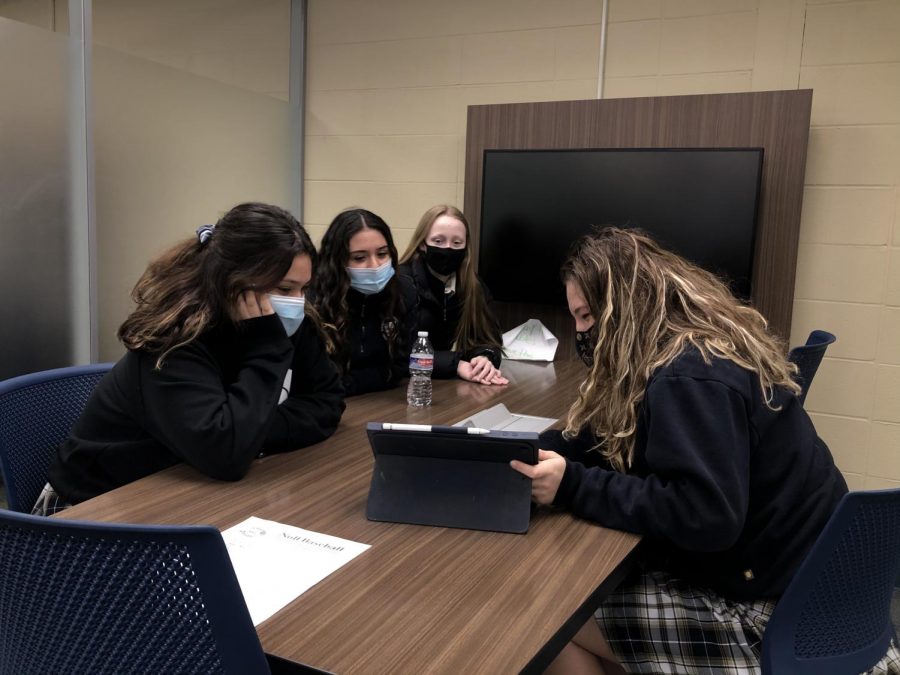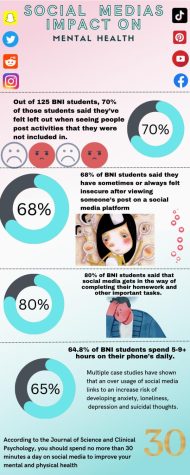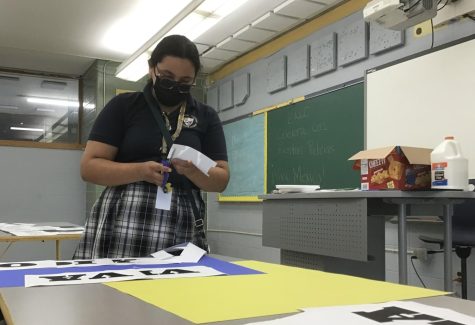Feeling sad this winter?
Seasonal Affective Disorder combined with the global pandemic could be the reason
BNI’s National Honor Society hosts daily tutoring sessions to help students keep their grades on track. NHS tutors have helped struggling students throughout the year in all different topics and grade levels.
March 19, 2021
How come the shortest days of the year feel like the longest? The sun sets early and what seems like an everlasting gloomy feeling persists throughout the winter months. Does everyday repeat itself? If you are feeling this way you might be experiencing something called Seasonal Affective Disorder (SAD).
The abbreviation SAD is ironic considering the fact that symptoms include changes in mood, lack of enjoyment, low energy, changes in sleep, changes in eating, difficulty concentrating and less time socializing. If you are experiencing feelings, don’t worry, there are many ways to help fight your SAD and gain motivation before it is too late.
In a recent survey, 68% of the Bishop Noll students said the current events have had an impact on their academics. On top of everything else going on in the world, seasonal depression is having a pretty drastic effect on students’ academic performance.
Ms. Cynthia Kielbasa, Bishop Noll’s mental wellness counselor, says that this year, more students will be impacted, due to a global pandemic. She believes this is because we are spending more time indoors and less time socializing with others.
“The most important thing to do if you are feeling some or all of these symptoms is to talk to a parent/guardian, and also to talk to a doctor or mental health professional,” says Kielbasa. “They can help students to determine if what they are feeling is seasonal affective disorder, and to rule out any medical conditions that may be causing those symptoms.”
Junior Olivia Mallagon says that in the winter she tends to struggle with finding motivation and feels drained often. She says that the cold weather makes her moody and irritated. She says that she enjoys the warmer months more because she gets to play her favorite sport, soccer, and run outside for track.
“In order to prevent seasonal depression, find an activity you love to do and spend time with those you care about,” says Mallagon. “Personally, I go to strength training, run track for the school, and spend time with my friends and family.”
Junior Anaiz Espinoza says that during the winter she tends to be more stressed with school work. She says that the pressure and stress can sometimes affect relationships with her family members because she gets irritated easily.
“One way that I prevent seasonal depression is by talking to my classmates,” says Espinoza. “We can all relate to the immense stress that school causes and help each other through it.”
Junior Diego Ruiz says that he enjoys the summer more because he can skateboard outside and learn new tricks, which he is unable to do in the winter. In order to prevent seasonal depression, Ruiz enjoys going to the gym, lifting weights, and cooking.
“Exercising always helps me feel better and less stressed. I tend to feel very good about myself after an intense workout,” says Ruiz. “I also try not to procrastinate my school work because in the end it just makes me feel more stressed.”
Kielbasa says that all of these are good ways to prevent seasonal affective disorder. This winter, Kielbasa says that she will work with students to help make positive changes in their daily routines.
If you feel like you are experiencing severe symptoms and would like to talk to a trusted adult, you can schedule a meeting with any of the counselors in the Guidance Department.
“More people are experiencing depression this year due to COVID, so maintaining our mental and emotional health has become even more important,” says Kielbasa.






